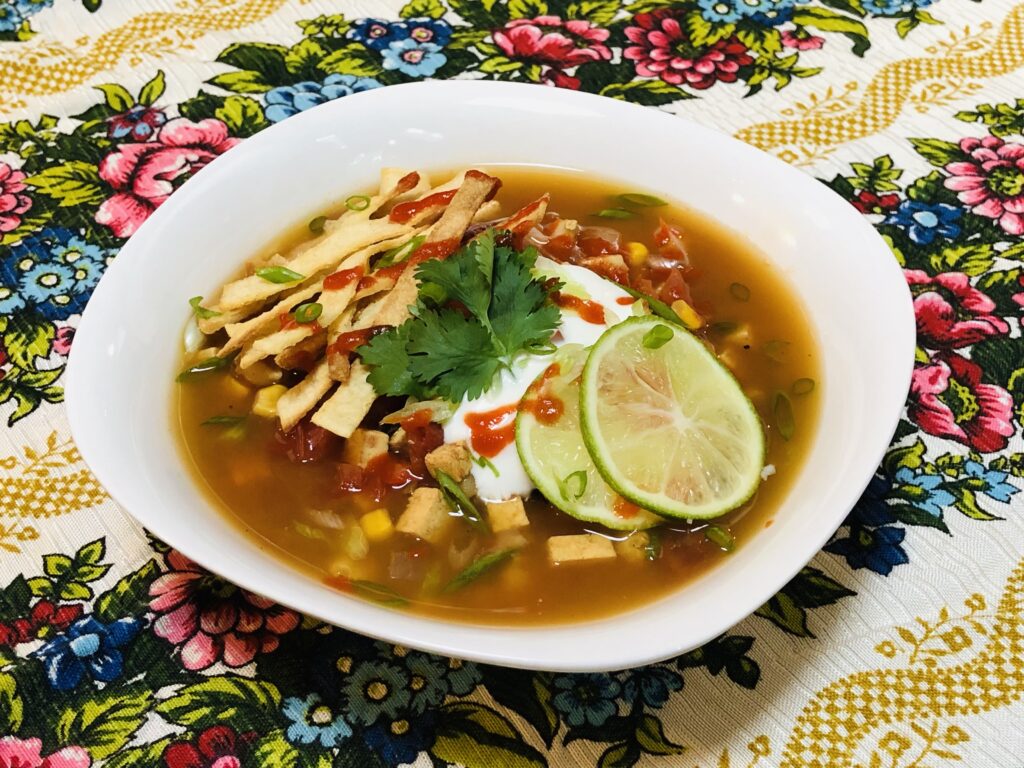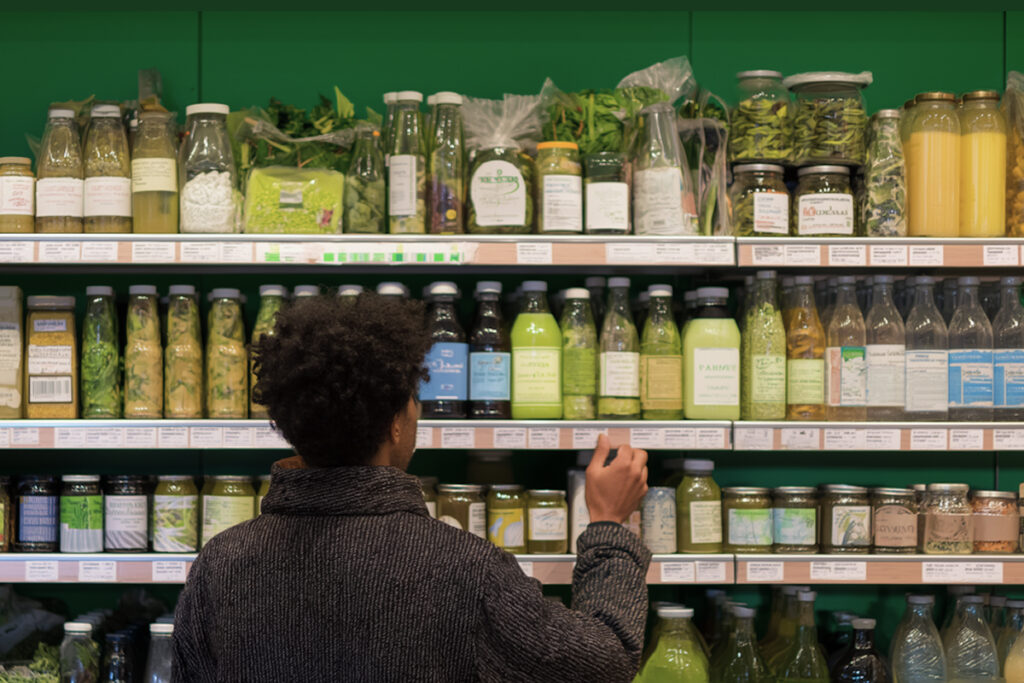What is the Certified Vegan Logo?
Distributed and recognized globally, the Certified Vegan Logo is a registered trademark for products that do not contain animal products or byproducts and that have not been tested on animals.
The logo is easily visible to consumers interested in vegan products and helps vegans to shop without constantly consulting ingredient lists. It also helps companies recognize the growing vegan market, as well as bringing the word Vegan—and the lifestyle it represents—into the mainstream. (Please keep in mind, however, that the logo is not yet on every vegan product.) The Certified Vegan Logo is currently on thousands of products manufactured by over 1000 companies.
The Certified Vegan Logo is administered by the Vegan Awareness Foundation (official name of Vegan Action), a 501(c)3 nonprofit organization dedicated to educating the public about veganism and assisting vegan-friendly businesses.
NOTE: The Certified Vegan Logo is permitted on products owned by companies and manufacturers located in the United States, Canada, Australia, New Zealand, and US territories but is distributed and recognized worldwide.
Certified Vegan Standards
In order for a product to be approved for Vegan Certification, it must not contain meat, fish, fowl, animal by-products, eggs or egg products, milk or milk products, honey or honey bee products, insects or products from insects such as silk or dyes, or sugar filtered with bone char or be processed with any animal products or by-products.
Products may not contain or be sourced from leather, fur, silk, feathers, down, bone, horn, shell, wool, cashmere, shearling, angora, animal skin, suede, or mohair.
Sweeteners may not be filtered or processed with bone char.
Prebiotics and probiotics must be cultured on or with a culture medium free of animal products or by-products..
Liquids such as beer, wine, maple syrup, vinegar, and fruit juices may not be filtered, defoamed, or clarified with animal products.
Products must not have involved animal testing of ingredients or finished products by the manufacturer after the year 2009 for any type of research or testing purposes whatsoever to include environmental safety, feed or nutrition trials, toxicity testing, or animal tests or trials “as required by law” to include third-party testing and may not be tested in the future.
Products may not contain any animal-derived GMO’s or animal-derived genes used to manufacture ingredients or finished product.
In addition, companies must submit and have approved by the Vegan Awareness Foundation that acceptable steps are taken to thoroughly clean and sanitize all surfaces, vessels, utensils, and machinery used between vegan and non-vegan production cycles to minimize cross-contamination, if shared machinery is used.
No Animal Products
Products approved to carry the Certified Vegan logo must not contain animal products or ingredients of meat, fish, fowl, animal by-products (including silk or dyes from insects), eggs or egg products, milk or milk products, honey or honey bee products, or be clarified or finished with any animal products.
No Animal Testing
Animal Testing is defined by Vegan Action as the use of animals (live or deceased) for any type of research purposes whatsoever to include environmental safety, feed or nutrition trials, toxicity testing, or animal tests or trials “as required by law” including contracted testing by another company, since the year 2009 and does not intend to test on animals in the future. This must be confirmed for individual ingredients, ingredient components, as well as the final product.
No Animal GMO’s
Products must contain no known animal-derived GMOs or genes used to manufacture ingredients or finished products.
Provide Verification
All ingredients must be verified that no animal products or animal by-products were not used in the manufacturing of ingredients or sub-ingredients.
| Fee Band | Annual Revenue | Annual Licensing Fee |
|---|---|---|
| A | Up to $15,000 | $150 |
| B | Up to $100,000 | $250 |
| C | Up to $250,000 | $400 |
| D | Up to $500,000 | $600 |
| E | Up to $999,999 | $1,000 |
| F | Over $1 Million | $2,000 |
| G | Over $10 Million | $3,000 |
All fees are in USD (United States dollar)
What is the cost for getting products Certified Vegan?
There is a $100 non-refundable application fee to apply. If approved and finalized, this fee will be applied to your first annual licensing fee payment. All fees are in USD (United States dollar).
We ask for an annual licensing fee of each company (not for each product) for use of the trademarked “Certified Vegan” logo. The licensing fee is assessed by the company’s annual revenue from the previous fiscal year (not based on the vegan product or brand) and is due before permission is granted to use the “Certified Vegan” logo.
The licensing fee helps support the Vegan Certification program and promotes vegan products worldwide!
Certification FAQs
Submit an Application
Please fill out the online application and easily upload your documents through the application form. In addition, you must submit a $100 non-refundable application fee. If the application is approved and finalized, this fee will be applied to your first annual licensing fee payment.
Submitting an application does not give the authorization to use The Certified Vegan Logo until the application is approved and permission is granted by The Vegan Awareness Foundation.
Unauthorized use of the Certified Vegan Logo is a violation of Federal Trademark laws. Altering the Certified Vegan Logo in any way is a violation of Federal Trademark laws.
Process Overview
Review
Review qualifications and requirements of vegan certification.
Collect
Collect all required documents from your ingredient manufacturers.
Submit
Submit your application with all required documents.
Make Payment
Pay the $100 application fee.
Wait for Review
Application will be reviewed by a certifier in 4-6 weeks and they will confirm if additional documentation is required or if there are any nonconformities that need to be corrected.
Sign & Pay
Sign the licensing agreement and pay the remaining annual licensing fee (less the application fee).
Receive Certificate
Once you receive your certificate of approval and the logo graphics, you can start using the logo on your certified products and social media.
Maintain Certification
Licensee will follow the licensing agreement and will promptly submit any changes to the certified products for review. Licensee may also submit new products for review.



